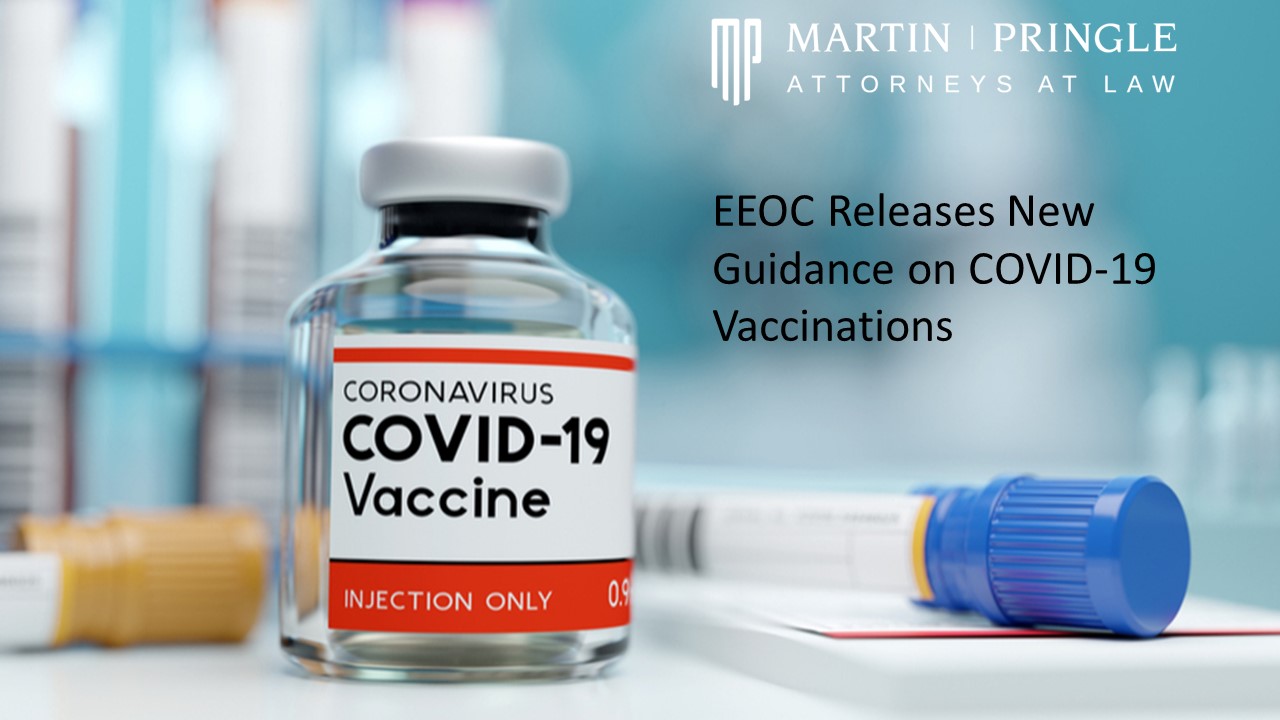
EEOC Releases Guidance on COVID-19 Vaccine
The EEOC issued guidance on December 16, 2020 for employers considering requiring COVID-19 vaccinations for their employees. As the EEOC notes, such a mandate would potentially raise issues governed by the Americans with Disabilities Act (ADA) and Title VII of the Civil Rights Act. Two specific scenarios addressed in the EEOC guidance are individuals who cannot receive the vaccination due to a disability and those who choose not to receive it due to their religious beliefs.
If an employee declines the vaccination, the EEOC guidance directs the employer to either provide reasonable accommodation or exempt the individual from the vaccination requirement. If this cannot be done, the employee may be forbidden from coming to work but cannot be immediately terminated. The EEOC explains:
- If an employee cannot get vaccinated for COVID-19 because of a disability or sincerely held religious belief, practice, or observance, and there is no reasonable accommodation possible, then it would be lawful for the employer to exclude the employee from the workplace…This does not mean the employer may automatically terminate the worker. Employers will need to determine if any other rights apply under the EEO laws or other federal, state, and local authorities.
If the reason that the employee cannot receive the vaccine is based on a disability, the employer should address each individual on a case-by-case basis to determine whether the employee poses a “direct threat” to the workplace if they forego vaccination. In a situation where an employee does present a direct threat, the employer must provide reasonable accommodation and can only prevent the employee from physically entering the workplace if the direct threat “cannot be reduced to an acceptable level.” An example of a reasonable accommodation in such a situation would be remote or teleworking. If the employee’s religious beliefs preclude him or her from receiving the vaccine, reasonable accommodations are also required unless such accommodations would present an undue hardship on the employer.
The EEOC guidance notes that the process of an employee receiving the COVID-19 vaccination would not be considered a “medical examination” under the ADA. However, the EEOC recognizes that “prescreening vaccination questions may implicate the ADA's provision on disability-related inquiries, which are inquiries likely to elicit information about a disability." Such questions would run afoul of the ADA. Prescreening questions asked by an employer administering vaccinations, therefore, should be limited to questions that are “job-related and consistent with business necessity." The Genetic Information Nondiscrimination Act (GINA) is similarly implicated if prescreening questions are aimed at seeking the employee’s genetic information.
An employer may, in the alternative, require employees to produce proof of receiving the COVID-19 vaccination by an outside vendor because such inquiry is not related to the individual’s disability and is not likely to elicit information about a disability. The EEOC guidance seems to favor this or similar approaches in the interest of employer liability as opposed to employers administering vaccines themselves.
If you have specific questions about the EEOC's newly released guidelines, please feel free to reach out to one of our employment law attorneys in Wichita, Overland Park, or Kansas City.
See All COVID-19 News